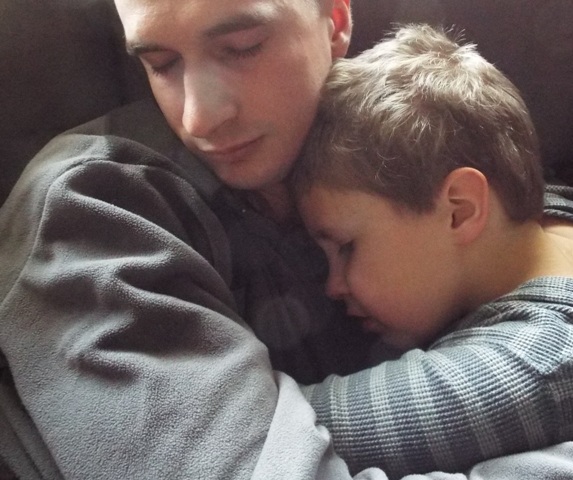A nuclear reactor is healthy when the temperature is in control. When too many variables become out of sync and the coolant can’t keep up, the reactor overheats, the pressure builds, and the core begins to breakdown and melt. The breakdown allows radiation to escape into the atmosphere then it falls back to earth. Heaven help anyone in the path. Sound familiar? How many times have our children’s nuclear reactor overheated and turned into the dreaded meltdown?
When the Child’s Nuclear Core Overheats.
In human terms, a healthy, happy person has all variables in sync. If one variable becomes an irritant it affects other variables that creates an emotional or informational overload. The pressure of being out of control can build quickly or might build for days. The healthy balance now unstable needs to find balance or it will continue to build. As tension bubbles over the persons healthy walls, emotional capabilities begin to erode and melt. The explosion or meltdown that has been building suddenly has a point of no return.

The Dreaded Meltdown
Tantrums are not the same as a meltdown. A tantrum is when a person loses control because they can’t have something. But meltdowns, now that’s a different story. We’ve all been there – some more than others. The dreaded meltdown happens because of a host of outside variables, stimulants and irritations that become too much for the person to control. Andrew, bless his little heart, introduced us to meltdowns. Over tired, over-stimulated, over heated – OVER – the greatest word… Mostly, one just hopes the meltdown gets ‘OVER’ fast!
Diffusing the meltdown
When I feel a meltdown might be imminent, there are steps I immediately take. I attempt to eliminate all background noise. If we’re are in the car and if it is possible, I pull over and turn the engine off. I try to provide quiet space. If Andrew is attempting to make a statement, I listen. I look him in the eye and repeat what I heard or what I think I understand. “I understand that you felt I was being unfair….”, or “I know that wasn’t what you wanted to hear….”
All the while I’m considering certain factors. When was the last time Andrew ate? How tired is Andrew? Have we been overly active? Sometimes it takes days for Andrew to recover from heavy activity. Have we had time to decompress? Tiredness for Andrew can be a large irritant as well as heat and humidity. Heaven help us when all three are combined. Throw in an active day and fast burning carbs and all it takes is one annoyance to cause Andrew’s internal core reactor to heat.
I try to control blood sugar and hypoglycemia. We keep a strict food schedule. Breakfast, Lunch, Snack and dinner. I keep a baggie of unsalted nuts in my purse – a quick protein snack to control glucose and insulin levels. I try to make sure Andrew eats protein with fast burning carbs such as pasta, fruit, or an occasional sugar treat. Pairing carbs with protein helps slow down the spike in blood sugar. When in doubt, get out a protein!
But sometimes no matter what precautionary measures are taken the meltdown just can’t be avoided.
The Reaction
When a meltdown is imminent take a deep breath and don’t react. While your insides are screaming your outside demeanor needs to stay c-a-l-m.
Children need us (caregivers) to remain in control. They can be out-of-control but our reaction to their meltdown can steer them like rudders on a ship. The last thing that’s needed is a screaming duo because parent and child are both having a meltdown. They need us to be strong when they can’t help themselves. This is difficult when we have our own strings being pulled in different directions. The school calls, boss is unhappy, we’re unhappy, child is screaming…………………. Standing strong is not easy but it is necessary!

The Fallout
How often do we breathe a sigh of relief when the dreaded meltdown subsides? Exhausted, we proclaim that we have survived yet another nuclear meltdown. We add another badge of survivorship to our mounting collections, breathe a sigh of relief, and move on with life. BUT, in reality, this is where the hard work begins.
Instead of crossing ourselves and thanking the good Lord above that the nuclear meltdown has ended, we still need to roll up our sleeves and clean up the aftermath. A nuclear meltdown is serious because of the radioactive materials that are released into the atmosphere. The fallout leads to the poisoning of people and the surrounding environment. The people and the environmental clean up is important but first and foremost the core must be taken care of. What happens to the person who had the meltdown? What about their spirit – their inner being? It is as fragile as the atmosphere during a nuclear meltdown.
Cooling Off Period
There needs to be a cooling off period. The person who just had the meltdown is in no condition to discuss or logically reason the issues at hand. Whatever it takes to cool down – do it! This is different for every family. For us, Andrew needs quiet time away from the mainstream. He loves his receipt collection which is a very calming OCD activity. During these moments, I like receipts — otherwise I find it a very annoying, self-absorbing, brain destroying activity.
Affirmation and Acceptance after a meltdown.
Typically, Andrew will come to me when he has cooled-off. At this point he really needs affirmation that despite all that happened he is still loved. We might sit on the couch together. I always keep a book near-by. We might watch a quick YouTube video. Sometimes, all he needs is a long hug. No one is perfect, and we can’t always be at our best. Affirmation that the child or adult is still loved is the most important part of the recovery process after a meltdown. It is sort of a, “I don’t like what happened but I will always LOVE you.” moment.

Reasons for the Dreaded Meltdown
This is more my step than Andrew’s. When he’s fully diverted and involved in some sort of a distraction. I take a few moments for myself. Something caused the dreaded meltdown. Before I can reason a meltdown, I find it easier to wait until everyone’s thought process’ has been diverted. This might be several hours or days later.
During this time, I find myself looking back and asking questions about what might have lead to the meltdown. What were the possible underlying causes? When was the last meal? What were the activities? Was temperature involved? Could Andrew be getting sick? Psyching out why the meltdown might have occurred gives me direction for how to bring the topic back up so that the meltdown can be discussed. It’s also at this time that I will make phone calls. If other people were involved or witness to the moment, I want to know their thoughts or what their child relayed to them.
Brainstorming after a Meltdown
I like to brainstorm with Andrew as to ‘why’ the meltdown occurred. What happened that led up to it? Could it have been handled differently. What would I have done differently? How can I guide others involved to handle future episodes? Sometimes Andrew has a hard time adequately communicating what happened. I try not to lead him along but try to make suggestions so that he can come up with the words to tell me what happened. This process might takes days or several weeks to gather all the information.
Once I started taking care of the fallout and Andrew’s self-worth, the meltdowns seem to lessen. Finding praise in turbulent situations is difficult but I always try to find something. If Andrew calms himself quicker than normal, I make sure that he knows that I noticed. He feels my praise. It raises his spirits and builds confidence.
What about us, the caregiver?
The dreaded meltdown is physically and emotionally draining for all involved. Take time to recharge your own batteries. I admit, I have secret chocolate stashes in several areas of the house. In emergencies, I can get to them fast! Taking a hot bath, walking, or a sushi run after Andrew is in bed is my reward. I’m not too proud to admit that I’ve locked myself in the bathroom with noise cancelling headsets (and some chocolate). Whatever it takes.

Practice What We Preach
We need to show our children with our own actions how we want them to behave. If we allow ourselves to become out-of-control in life’s situations, then we are teaching them the exact behavior that we want to prevent. This is where I struggle – especially behind the wheel because I am the only person who knows how to drive.
*Reminder*
This is a safe site for children. If comments
are not
tastefully stated, they will disappear in a “POOF”!


